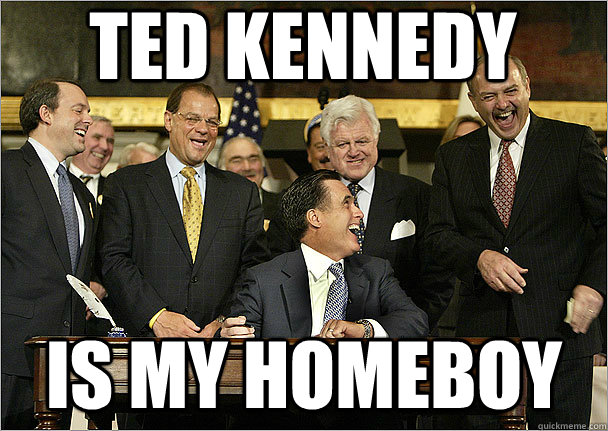Reprinted from National Journal
One really has to ask the question: When you can manage to have the keynote speaker at the Republican convention -- the man who accurately predicted that Mitt Romney would turn things around in the first debate -- publicly expressing gratitude to you and tagging along while you conduct a very presidential-looking tour of disaster areas just six days before the election, is Mother Nature on your side?
One really has to ask the question: When you can manage to have the keynote speaker at the Republican convention -- the man who accurately predicted that Mitt Romney would turn things around in the first debate -- publicly expressing gratitude to you and tagging along while you conduct a very presidential-looking tour of disaster areas just six days before the election, is Mother Nature on your side?
It’s certainly not a question that Barack Obama or his campaign team would ever dare raise themselves, so I thought I would do it. I don’t want to get mystical, and I certainly don’t want to make light of the devastation, death, and anguish caused by Hurricane Sandy. But the long-anticipated October Surprise that some of us thought might come from the Israelis (an attack on Iran) or Obama himself (retaliatory action for Benghazi, perhaps?) seems to have been delivered up by Nature.
And it’s all very likely to redound to the president’s credit.
With both campaigns on hold for two days, the Sandy effect has been almost like a timeout in a hard-fought basketball game, when the losing team stops the action to change the momentum. The president’s supposed to be a savvy basketball player, but the elements called this particular timeout for him. Until Sandy, Romney seemed to have the Mo. In particular, Obama’s effort to remind voters that the surging Moderate Mitt of the last month had once been the Right-Wing Romney of the primaries wasn’t working very well. “You’re all over the map”—Obama’s signature line against Romney’s constant shape-shifting—just wasn’t resonating. Nor was his awkward coinage, “Romnesia.”
Now, all of a sudden, several things have happened at once to alter the political landscape as well as the New Jersey coastline. For Obama, a tour of the battered Jersey shore on Wednesday with Gov. Chris Christie, one of Romney’s key champions and the president’s most eloquent critics, provides a bounty of campaign optics that even super PAC ad money can’t buy.
And early reports indicate that the much-maligned FEMA, the Federal Emergency Management Agency, has delivered a mostly competent response to the disaster, eliciting lavish praise from Christie himself. (“FEMA Goes from Goat to Glory,” enthused one ABC News account). So the president now seems to have a dramatic real-world illustration of the argument he has been trying, and largely failing, to make: Our federal government can work. The same kind of government Mitt Romney andPaul Ryan have been relentlessly denigrating for months. Bipartisan government. My government.
It helps considerably, of course, that the Obama team has widely circulated Romney’s dismissive response to a question about FEMA from June 2011, when the GOP nominee, who was then fighting to stay ahead of his far-right rivals in the primaries, appeared to support cuts to federal disaster aid. That has supplied a more compelling reminder of the old Right-Wing Romney than anything the president could say. And it hasn’t hurt that the buffoonish face of George W. Bush’s failed Hurricane Katrina response, former FEMA director Michael Brown, rose from political oblivion all on his own to suggest that Obama responded to Sandy too “quick.” (Once again: Heckuva job, Brownie!)
At the same time, Romney appears to have run his campaign juggernaut into a ditch this week in critical Ohio. His campaign’s all-too-transparent effort to turn a political event into a Sandy “relief rally” fell flat. And a series of flagrantly false ads about Obama’s auto bailout elicited embarrassing rebuttals from executives of both GM and Chrysler, who until a few days ago had to be considered pillars of the Romney base.
Couple that with the resilience of Obama’s numbers among white male voters in Ohio, with whom he has closed Romney’s lead considerably (and remained five points ahead in the overall poll) thanks in large part to the success of the auto bailout, and the Obama campaign has a compelling closing-days argument that the federal government can really be useful in times of crisis. The president’s argument.
Will these days of disarray--Obama’s timeout-- be enough to swing the momentum? Things could still go badly for Obama, especially if millions of people continue without power through Tuesday (or more precisely, news accounts of millions of people going without power continue through Tuesday). But for the moment, Mother Nature appears to have weighed in on the president’s side, intentionally or not.











